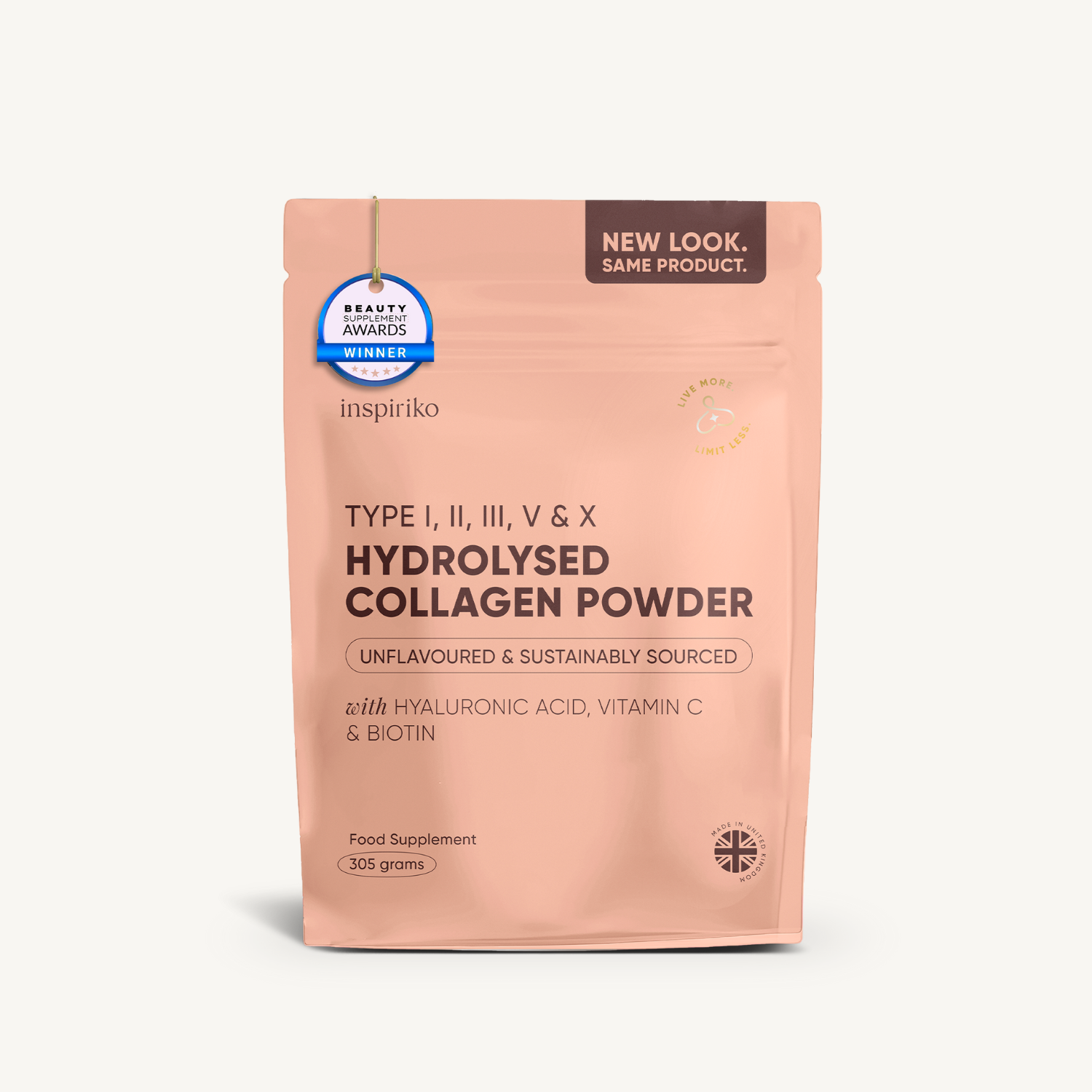As we move through menopause, we often focus on symptoms like hot flushes and mood swings—but what about our heart health? The truth is, menopause significantly affects the cardiovascular system, and many women are unaware of the increased risk of heart disease that comes with this stage of life.
Oestrogen, a key hormone that declines during menopause, plays a vital role in maintaining heart health. With lower levels of oestrogen, changes in cholesterol, blood pressure, and blood vessel function can put you at greater risk of cardiovascular disease. But here’s the good news: while menopause does bring challenges, it also offers an opportunity to take charge of your heart health with proactive, science-backed strategies.
In this article, we’ll break down the link between menopause and heart disease, offer practical ways to keep your heart strong, and answer common questions about staying heart-healthy during and after menopause.
How Menopause Affects Heart Health
Oestrogen is more than just a reproductive hormone—it also supports heart function by keeping blood vessels flexible and regulating cholesterol levels (1).
As a result, as your estrogen levels decline, you may experience changes in your cardiovascular system. This includes changes in blood pressure and cholesterol levels (2).
-
Increased LDL (“bad” cholesterol) and reduced HDL (“good” cholesterol) can lead to plaque buildup in the arteries.
-
Higher blood pressure due to less elastic blood vessels, increasing strain on the heart.
-
Increased risk of weight gain, particularly around the abdomen, which is linked to heart disease.
-
Changes in glucose metabolism, making postmenopausal women more prone to insulin resistance and type 2 diabetes, both of which affect heart health.
These changes can potentially increase the risk of heart disease. One symptom that can cause concern and anxiety during menopause is heart palpitations (3). These are the sensations of a rapid or irregular heartbeat. These are often described as a pounding, fluttering, or racing feeling in your chest, and it's important not to ignore them.
What can cause these palpitations?
-
Hot flashes, anxiety, and depression (which are common menopause symptoms).
-
Lifestyle factors such as stress, caffeine, and alcohol.
-
Certain medications.

Can Menopause Cause Heart Disease?
While menopause itself doesn’t cause heart disease, it raises the risk due to hormonal shifts that impact cholesterol, blood pressure, and metabolism. Without protective levels of oestrogen, women may see a higher incidence of heart conditions. These include coronary artery disease and stroke.
Other factors, such as genetics, lifestyle choices, and pre-existing conditions, also play a role. This is why it’s essential to adopt heart-healthy habits early on—small changes can make a significant difference in protecting your heart for years to come.
Slowing Heart Palpitations: Practical Tips for Relief
Managing and reducing heart palpitations can help ease your worries and improve your well-being. Here are some tips to consider:
-
Deep breathing and relaxation techniques, like meditation or yoga, can help you calm your mind and regulate your heartbeat.
-
Drink enough water, as dehydration can contribute to palpitations (4), as your heart has to make an extra effort to pump blood throughout your body.
-
Limit stimulants. Cut back on caffeine and alcohol, as these can trigger or worsen palpitations. Opt for herbal teas or decaffeinated alternatives to support your heart health!
-
Manage stress and engage in activities that bring you joy, such as hobbies, gentle exercise, or spending time with loved ones.
-
Talk to your doctor. If heart palpitations persist or become more frequent, consult your healthcare provider. They will order a comprehensive evaluation and guidance tailored to your specific needs.

How to Recognise Heart Disease Symptoms in Women
Women face a unique challenge when it comes to heart attacks - they are less likely to survive their first cardiac event compared to men. One of the reasons behind this disparity lies in the differences between how heart attack symptoms manifest in women versus men (5). While chest pain is often regarded as the hallmark symptom, women may experience subtler or even atypical signs. As a result, detection and timely intervention are more difficult. Let’s have a closer look at these variations in symptoms:
-
Chest Pain: Women may not always experience the intense, crushing sensation associated with a heart attack. Instead, they might have a milder discomfort or a sensation of pressure that can be mistaken for indigestion or muscular strain.
-
Extreme or Unusual Fatigue: Women may feel overwhelming and unexplained fatigue, often occurring days or even weeks before a heart attack. This persistent exhaustion can be mistaken for other factors, such as stress or lack of sleep, leading to a delay in seeking medical attention.
-
Shortness of Breath: Difficulty breathing or experiencing shortness of breath is a symptom more commonly reported by women during a heart attack and may be accompanied by chest pain.
-
Sweating: Women may experience profuse sweating, often described as breaking out in a cold sweat, during a heart attack.
-
Upper Body Pain: Unlike men who primarily experience chest pain during a heart attack, women may feel pain or discomfort in other areas of the upper body, such as the back, neck, jaw, or shoulders.

How do I protect my heart during menopause and beyond?
Taking care of your heart doesn’t have to be complicated. Here are some evidence-based ways to protect your cardiovascular health during and after menopause:
Nutrition
What you eat directly impacts your heart health. A diet rich in whole foods, lean proteins, and healthy fats can support circulation and reduce inflammation. Adopting a heart-healthy diet is crucial. Focus on consuming a balanced array of nutrient-rich foods, including:
-
Fruits, like mangos, bananas, or apples;
-
Vegetables (especially leafy greens);
-
Lean meat and vegetable protein;
-
and healthy fats, like virgin olive oil and avocado.
Do away with processed foods, saturated fats, and sodium! Incorporating foods rich in omega-3 fatty acids can provide more cardiovascular benefits (6). Some examples of these foods include salmon, flaxseed, and walnuts.
Do Regular Exercise
Regular exercise strengthens the heart, improves circulation, and helps manage weight. Aim for at least 3 hours a week of aerobic exercise (the type that makes you sweat!), such as dancing, cycling, or swimming. Moreover, incorporating strength training exercises twice a week helps build and maintain skeletal muscle mass, which is also beneficial during menopause (7).
Making Better Lifestyle Choices
Optimize your lifestyle habits to support heart health! For instance:
-
Quit smoking: nicotine is a risk factor for heart disease, among other negative consequences on your health;
-
Chronic stress increases cortisol levels, which can contribute to heart disease. Manage stress through relaxation techniques, mindfulness, and engaging in activities that bring you joy;
-
Rank quality sleep to allow your body to rejuvenate and recover.
And don’t forget to schedule regular check-ups with your healthcare provider. Monitoring blood pressure, cholesterol levels, and other relevant markers enables early detection and management of any potential issues.

Supplement Wisely
Natural supplements can provide additional support for heart health. Consider:
-
Magnesium glycinate, known for its ability to support blood pressure and muscle function.
-
Omega-3 fatty acids, which help lower inflammation and improve cholesterol balance.
-
Phytoestrogens, found in foods like flaxseeds and soy, may help mitigate the impact of lower oestrogen levels.
Inspiriko’s Chelated Magnesium Glycinate is a powerful ally for heart health during menopause. It supports healthy blood pressure, circulation, and muscle function while easing symptoms. Magnesium is essential for maintaining a steady heartbeat and relaxing blood vessels, yet many women experience deficiencies during menopause, increasing the risk of cardiovascular issues.
Unlike other forms of magnesium that can cause digestive discomfort, this highly bioavailable, fully reacted formula is easy for the body to absorb, ensuring maximum effectiveness.
Remember, you're not alone on this journey. Take charge of your heart health and embrace this new chapter of life with vitality and resilience. And don't hesitate to seek professional guidance when needed!
FAQs
Does menopause increase the risk of heart disease?
How to prevent heart disease after menopause?
Related Products
References for the blog
-
Menopause and heart disease. (n.d.). British Heart Foundation.
https://www.bhf.org.uk/informationsupport/support/women-with-a-heart-condition/menopause-and-heart-disease#:~:text=During%20and%20after%20the%20menopause,the%20build-up%20of%20plaque -
Menopause and the Cardiovascular System. (n.d.). Johns Hopkins Medicine, based in Baltimore, Maryland.
https://www.hopkinsmedicine.org/health/conditions-and-diseases/menopause-and-the-cardiovascular-system -
Carpenter, J. S., Sheng, Y., Elomba, C. D., Alwine, J. S., Yue, M., Pike, C. A., Chen, C. X., & Tisdale, J. E. (2021). A Systematic Review of Palpitations Prevalence by Menopausal Status. Current Obstetrics and Gynecology Reports, 10(1), 7–13.
https://doi.org/10.1007/s13669-020-00302-z -
Hydration and your heart • Heart Research Institute. (n.d.). Heart Research Institute.
https://www.hri.org.au/health/your-health/lifestyle/hydration-and-your-heart -
Emslie, C. (2005). Women, men and coronary heart disease: a review of the qualitative literature. Journal of Advanced Nursing, 51(4), 382–395.
https://doi.org/10.1111/j.1365-2648.2005.03509.x -
Jain AP, Aggarwal KK, Zhang PY. Omega-3 fatty acids and cardiovascular disease. Eur Rev Med Pharmacol Sci. 2015;19(3)
-
KO, J., & PARK, Y.-M. (2021). Menopause and the Loss of Skeletal Muscle Mass in Women. Iranian Journal of Public Health.
https://doi.org/10.18502/ijph.v50i2.5362




